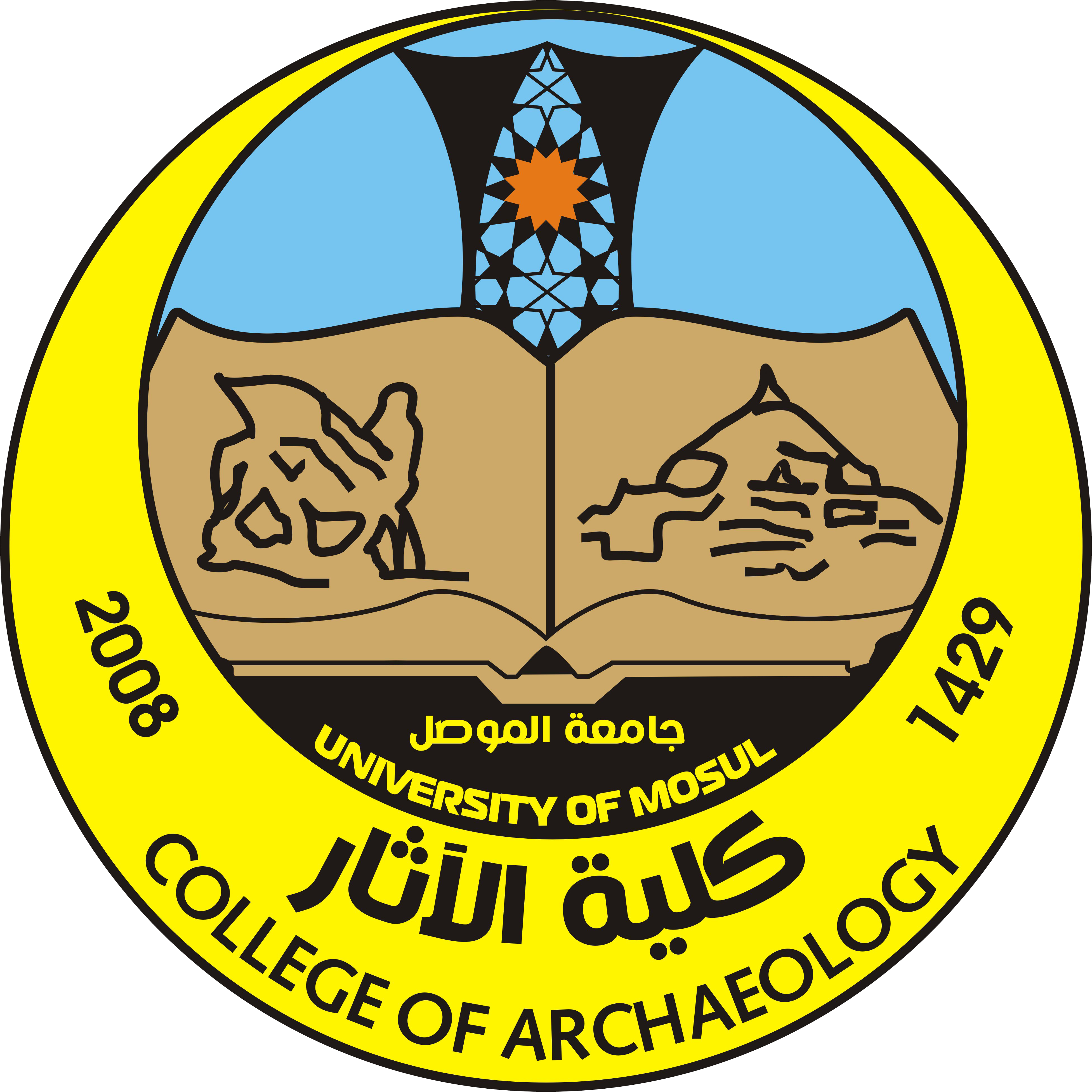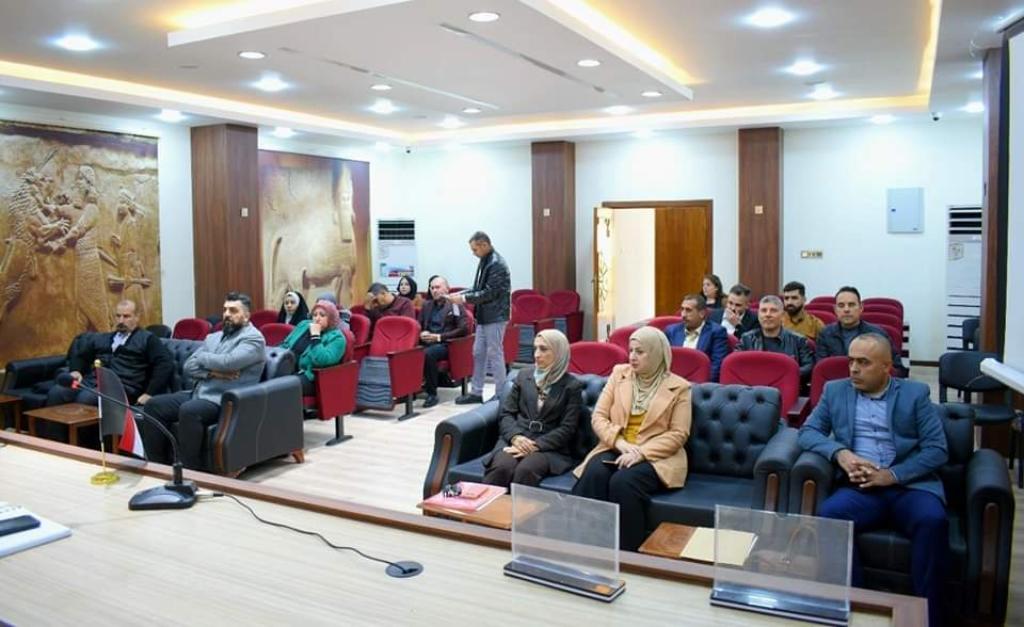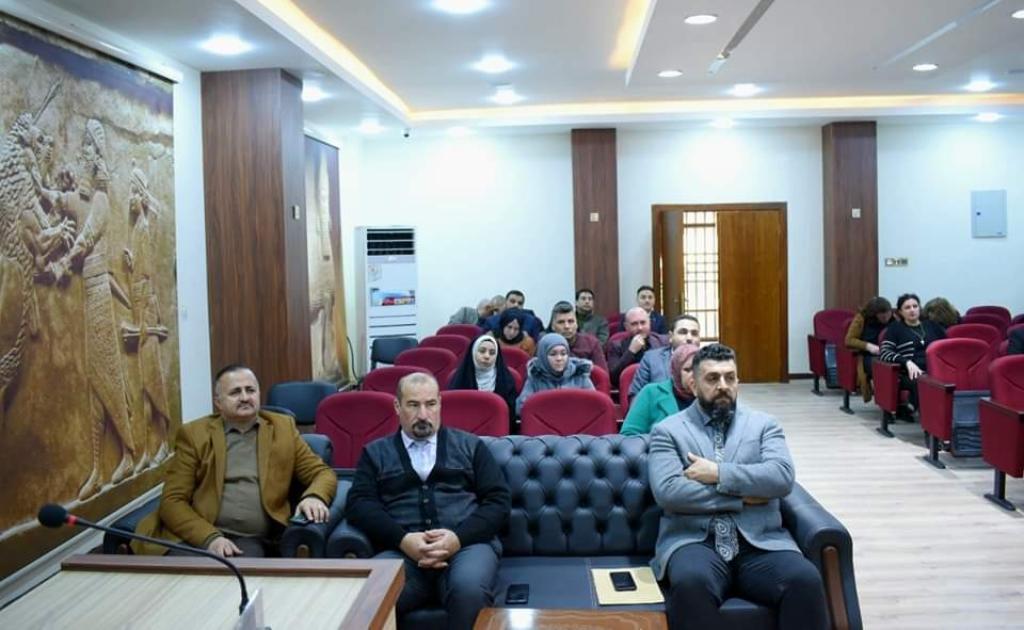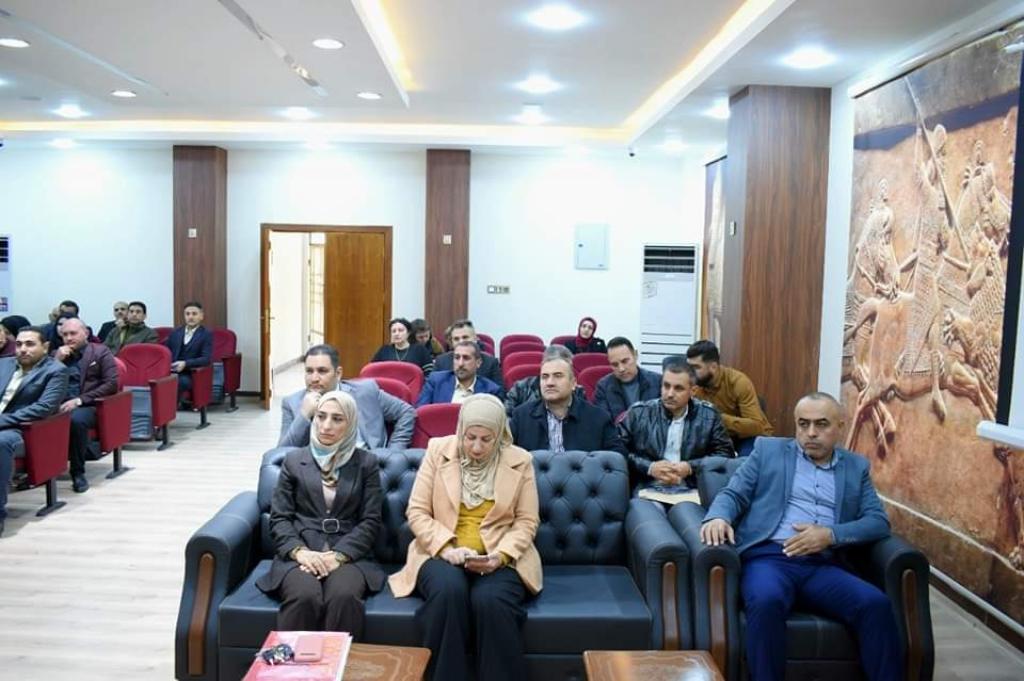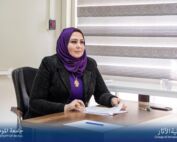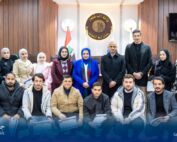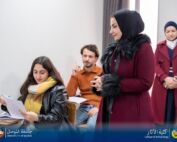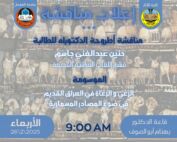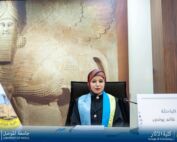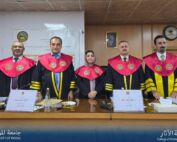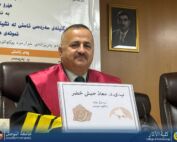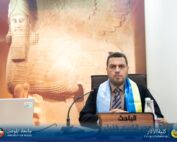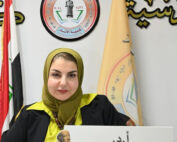6 December، 2022
A scientific workshop within the (16) days campaign to eliminate violence against women
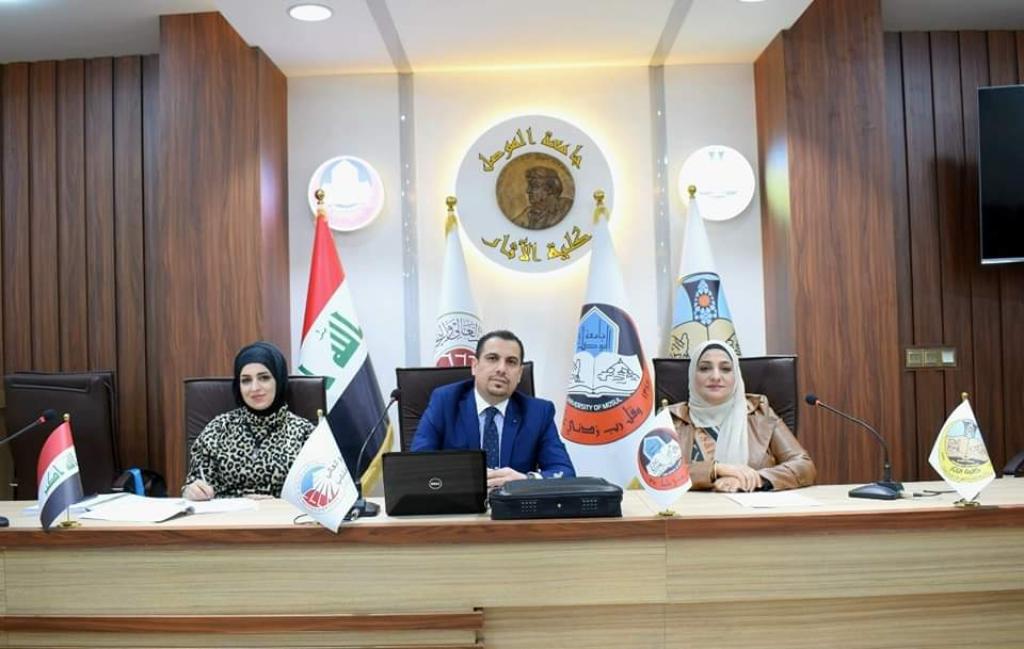
Under the patronage of Prof. Qusai Kamal Al-Din Al-Ahmadi, President of the University of MosulAnd under the supervision of Asst. Prof. Dr. Yasmine Abdel Karim Mohamed Ali, Dean of the college of ArchaeologyThe College of Archaeology established in cooperation with the Women’s Empowerment Unit at the Presidency of the University of Mosul A scientific workshop within the (16) days campaign to eliminate violence against women on Tuesday, 12/06/2022The workshop was held at the hall of Dr. Behnam Abu Al-Souf in the college of ArcheologyViolence against women continues to occur on a widespread and alarming scale in every country in the world, so often that it is accepted as normal behavior and the global culture of discrimination against women allows violence with impunity. Speaking out against violations of women’s rights is the job of women’s rights organizations. From pressuring governments to improve laws and services to working with communities to change discriminatory attitudes and behaviors, organizations and individuals around the world are working to respond to and prevent victims of violence against women. However, violence against women is a global problem and requires global action. Calls to action campaigns such as the 16 Days of Activism are critical as they highlight the issue of violence against women. They are days that aim to create public awareness about what needs to change to prevent it from happening in the first place at the local, national, regional and international levels.The workshop included two main topics:First : Empowering women in Iraq – the pros and cons delivered by Dr. Iyad Thanoun Younessecond: Violence against women in ancient Iraq in light of the ancient Iraqi laws, delivered by Ms. Nour Laith Ghanem (Master’s degree student)The workshop came out with several recommendations:Reconsidering laws and legislation that preserve women’s prestige and rights, and not legislating laws that humiliate women by claiming that this is observance of religious laws, especially since religious laws came with the aim of preserving human humanity and aiming it for prosperity, development and creativity.
Increase considerations to reduce sexual harassment in the context of dealing with government institutions by establishing a task force to review policies that prohibit sexual harassment, work to implement the best laws regarding harassment, increase penalties for perpetrators of such practices, and develop easy and confidential means for reporting harassment and this group will be women not men.
Helping women in villages and rural areas and introducing them to their rights at the political, economic, cultural, social and health levels.
Increasing government services that help breadwinner mothers due to the increase in their numbers after losing their husbands or their breadwinner due to war or divorce, especially the financial services that the family needs.
Investing in methods that enable women to earn their living from home electronically without the need to leave it, in order to avoid society’s view of them in conservative societies, by establishing an electronic commercial infrastructure supported by the central government and civil society organizations.
Increasing the number of women in police stations and not limiting them to community police to deal with sexual harassment and electronic extortion cases; To ease women’s fears if they want to go to the police station, as well as deploy women’s police patrols in local markets to monitor sexual harassment cases.
The texts and laws to support women need to be activated and coexistence with the reality of their actual life, as what the social protection network pays to a widow or mother of several children does not exceed (the amount of 180 thousand), which is an amount that does not cover only a small part of the family’s requirements. In addition to granting the central and local government financial facilities to women to launch their own projects without those grants having benefits, this would contribute to the development of the private sector and reduce dependence on the government sector.
Activating special community teams to spread the culture of women’s rights and how to contact the competent authorities in case they are subjected to domestic abuse or violence through university elites giving lectures in governmental and private colleges for the female element, or through specialized community teams giving lectures in public and private schools when there is a meeting for parents and mothers in schools.
Expanding the establishment of intellectual and sports clubs for the female element, due to its importance in forming young female leaders capable of playing an important role in society.
Opening educational courses for women in residential neighborhoods in cooperation with the central and local government, international organizations and civil society organizations to teach sewing, haircuts, beautification, marketing, electronic work, driving cars…etc.
